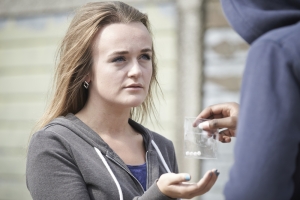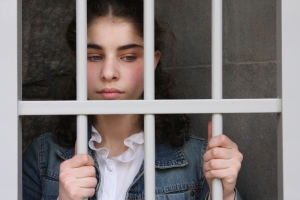 There has been a disturbing global increase in New Psychoactive Substances (NPS) – often called ‘legal highs’ – and nowhere, currently, are they more prevalent than in the UK.
There has been a disturbing global increase in New Psychoactive Substances (NPS) – often called ‘legal highs’ – and nowhere, currently, are they more prevalent than in the UK.
According to the United Nations Office on Drugs and Crime (UNODC), the UK has the biggest market for legal highs in the whole of the EU. The World Drug Report states that 670,000 Britons aged 15-24 have tried them at least once.
Legal highs often have similar effects to cannabis, heroin and amphetamines, and are sold as uppers, downers or hallucinogenics on the UK high street and over the internet. Since legal highs cannot be sold for human consumption, they are often sold as plant food, incense, or salts. The trouble is that buyers cannot be certain what the product will contain, and adverse effects cannot be predicted. These substances are not controlled yet because there is not enough information on them to base a decision. However, ‘legal highs’ are increasingly being researched to identify the dangers and determine if they should be made illegal.
Legal highs have been directly associated with anti-social behaviour, causing some of the same problems as illegal drug use. Some users of legal highs steal to get the money for their fix, and drug-induced behaviour often leads to criminal activity and endangerment.
In Morriston, Swansea, “new psychoactive substances have become the biggest cause of anti-social behaviour”, Councillor Andrea Lewis said. “We had young people behaving erratically, literally running out into the street into oncoming traffic.”
Police forces in Wales have seen incidents involving legal highs increase from 18 in 2012 to twenty times that many: 371 in 2014.
A BBC News investigation discovered that legal highs can be more addictive than some illegal drugs – and are getting stronger. Benzofuran and Mephedrone have even been banned. However, as soon as certain substances are made illegal, new ones are produced and on sale.
Some people are seriously affected by legal highs, and doctors are concerned.
“We are seeing increasing numbers of people going into mental health units with acute psychotic episodes after having taken some of these legal substances,” said Julia Lewis, Clinical Director for adult and specialist mental health services. “We are hearing of quite young people having heart attacks; I treated one 17-year-old boy who’d had a small heart attack on one of these substances.”
To receive help and signposting to organisations offering advice and support with drug issues, contact the BBC Action Line on 08000 680 118
Or contact FRANK, the drugs information agency directly, 24/7/365, on 0300 123 6600
Georges Petitjean
Founder, Arthur Coaching
Arthur trains individuals to become professional Young People Coaches. Our mission is to facilitate access to quality leadership coaching for young people.
